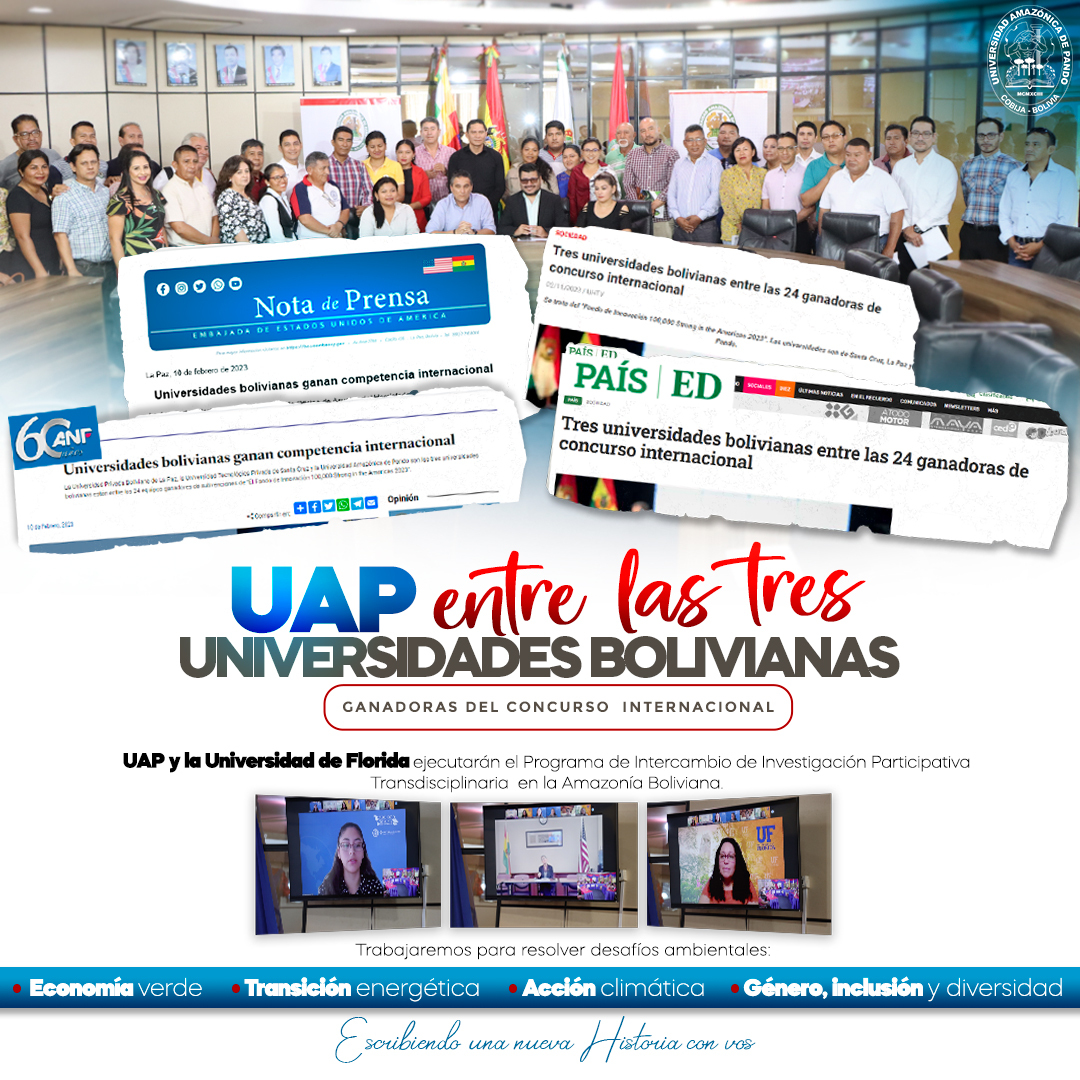The Transdisciplinary Participatory Research Exchange Program, led jointly by the University of Florida (UF) and Universidad Amazónica de Pando (UAP), has a clear mission: to empower the next generation of scientists to engage in transdisciplinary research aimed at addressing pressing societal challenges. Focusing on critical topics such as the green economy, environmental concerns, climate action, energy transition, and gender, this program creates a dynamic platform for collaborative research and cross-cultural experiences, bridging the gap between undergraduate students at UAP and graduate students at UF.

The program unfolds through a well-structured sequence of learning, research, mentoring, and dissemination activities. Students take short courses covering essential research subjects, construct and execute research projects in collaboration with local stakeholders, and gain valuable mentoring experience. Anticipated outcomes are substantial, including students' readiness for transdisciplinary research, the co-creation of knowledge, the enhancement of mentoring skills, scientific advancements, and the attainment of academic credentials.
UF, took the lead in project management through its esteemed Tropical Conservation and Development program, led by seasoned researchers and administrators. UAP, a public Bolivian university, is equally committed to nurturing research capabilities, bolstered by its International Relations Office. Both institutions bring a history of successful collaboration to the table.

This program introduces innovative transdisciplinary research methods tailored to tackle pressing environmental challenges. UF's graduate students and faculty join forces with UAP faculty to prepare students for research endeavors that engage local stakeholders. The program unfolds in three phases, each targeting learning, research, and dissemination. Importantly, it fosters diverse partnerships and cross-cultural exchanges, furthering the cause of equitable research practices.
The program's potential for replication is reinforced through existing partnerships in various Amazon regions, while its impact is wide-ranging. Collaborative research and knowledge co-creation benefit communities, students, NGOs, and academia alike, strengthening academic, community, and international networks.
Both UF and UAP are deeply committed to internationalization, with UF's Tropical Conservation and Development program boasting extensive experience in Latin America and UAP actively expanding its research capacity. Challenges, such as financial constraints and language proficiency, are thoughtfully addressed through scholarships and language training. The program is poised for growth, with plans for certificate programs and innovative mentoring approaches.
To learn more about the Transdisciplinary Participatory Research Exchange Program in the Bolivian Amazon, watch video here
To watch the event recording, click here

